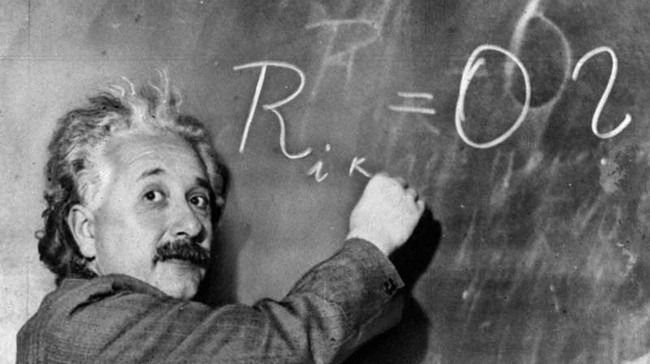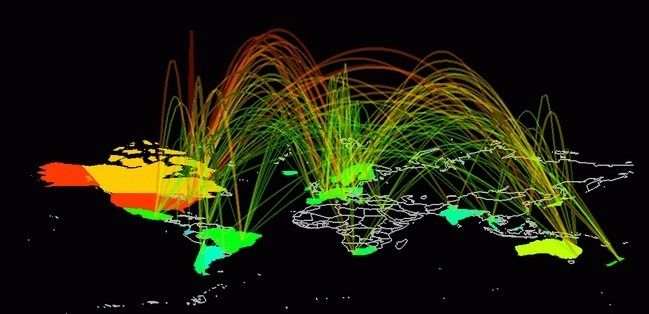Every week we take a look at interesting trivia and events from the history of Geekdom. This week we’re taking a look at the first public offering of Microsoft stock, the birth of Albert Einstein, and the cross linking of information networks across the Atlantic.
Microsoft Goes Public
Although Microsoft was officially established as a corporate entity in 1975 it wasn’t until 1986 that they went IPO with their first stock offering. The opening stock price was $21 a share and it’s a safe bet that not a single trader who looked at the stock that day could have guessed it would go on to be worth $7,200—952 shares, or approximately $20,000 worth of original stock has split 9 times and now has a current value of $6,840,000. More important than merely the financial success of Microsoft was their ability to put new technologies into homes. Microsoft can claim to have been the first to do very little—they didn’t invent the GUI, they didn’t invent the mouse, they didn’t invent thousands of large and small innovations people often associate with Windows—but they did package and deliver them in such a way that millions upon millions of people now use Microsoft products on a daily basis. Love or hate their products and policies, Microsoft is a computing juggernaut.
The Birth of Albert Einstein
Albert Einstein, Born to Hermann and Pauline Einstein, was a bright child with an interest in mathematics and the science of the physical world. Hardly anyone would have guessed, however, that the curious boy of a German engineer would go on to become a god in the pantheon of scientific greatness. Einstein went on to publish papers about capillary forces, the photo electric effect, and other things that interested him. What he is best remembered for, despite his proliferation of writings and lectures, is his groundbreaking work on Special Relativity and his role in the cold war mission The Manhattan Project which gave birth to the atomic bomb. His role in the invention of the atomic bomb would haunt Einstein for the rest of his life; he regarded the creation of the bomb and the unleashing of nuclear super powers upon the planet to be his gravest mistake, ameliorated only by the knowledge that in doing so he had brought a terrible war to an end.
The Internet Becomes Cross-Oceanic
It’s hard to imagine now, when we’re able to upload a photo from a cellphone in California to a photo farm in Geneva in a matter of seconds, but the world wasn’t always so interconnected. As recently as the early 1990s even there was very little interconnectivity between the data networks of Europe and the data networks of the United States. In March of 1990 the National Science Foundation announced their project to extend it’s high speed data network to connect Europe. By the end of the decade the memory of an unconnected world was rapidly fading and now, as we enter the second decade of the 21st century, it’s almost unfathomable.
Other Notable Moments from This Week in Geek History
Although we only shine the spotlight on three interesting facts a week in our Geek History column, that doesn’t mean we don’t have space to highlight a few more in passing. This week in Geek History:
- 1937—Death of H.P. Lovecraft, reknowned horror author and originator of the Cthulhu mythos.
- 1941—Birth of Wolfgang Petersen, best known as director of Never Ending Story.
- 1948—Birth of William Gibson, author of cyberpunk classics such as Neuromancer and Burning Chrome.
- 2007—Sci-Fi Show Sanctuary first airs on the web, later picked up by SyFy channel.
Have an interesting bit of geek trivia to share? Shoot us an email to tips@howtogeek.comwith “history” in the subject line and we’ll be sure to add it to our list of trivia.




